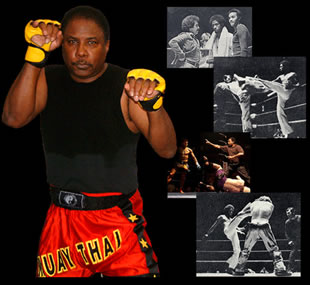The Time for Transparency in Judging is Here
Diego Sanchez rightfully won a unanimous decision over Paulo Thiago last weekend at UFC 121, but even in getting the decision right, one of the judges charged with scoring the contest got it totally wrong. While two of the judges submitted scores of 29-28, the only score that made sense, the third amigo offered up a Sanchez victory at 30-26, a score that is both improbable and insulting.
The only good thing about the score is that it shows beyond a shadow of a doubt that there is a serious need to retool the judging process in mixed martial arts.
Let me make this clear: I’m not advocating changing the way we score fights; I don’t have a horse in the Pride-style vs. 10-point must vs. half-point rounds race. What I do have is an enduring frustration with hearing results read that make my head hurt, seeing judges who routinely submit questionable scorecards continuing to be place around the cage, and the lack of action being taken to correct these obvious problems.

Round One looked like a continuation of the beatdown Sanchez suffered at the hands of John Hathaway five months earlier. It was only in the middle of the second round that Sanchez began to turn things around, highlighted by the powerful slam he delivered with an accompanying howl. From there, the winner of Season One of The Ultimate Fighter dominated, but not to the point of earning a 10-8 score.
While the fighter formerly known as “The Nightmare” clearly won the final frame, Thiago gutted out the last five minutes with heart, continuing to offer up submission attempts even while being wrestled to the ground. That isn’t the kind of effort that merits being on the receiving end of what is a fairly rare score to see turned in.
What exacerbates the problem is that there are no means to find out why a judge submitted such a score. While many people ask why, it is a question that remains prominent in the MMA community but unaddressed outside of the Internet. Those sitting in the media section can see who turned in the score in question, but that still does not offer any insight into how such a curious card was submitted. No one makes the judges stand up and support their cases, something that frustrates me as a fan and irks me as a journalist.
I can’t offer up opinions or observations about the sport without someone asking me to defend my points, even though nothing I say has any tangible impact on the careers of the fighters I cover. If I write an unfavorable feature on a competitor, the worst that happens is that the subject fighter refused to deal with me in the future. If a judge hands in a questionable card, that fighter can lose a fight, a much-needed financial payday or even their employment, yet no one is asking them to step up and defend their scoring decisions. When someone does, Cecil Peoples goes off.
Perhaps that is the greater indication of the problem at hand with judging in MMA right now: the simple mention of certain judges makes people cringe, yet time-and-again, Peoples, Glen Trowbridge and others with a history of questionable scores find their seats next to the cage.
In workplaces around the world, repeated mistakes and poor performance results in change, but in judging mixed martial arts, that doesn’t seem to be the case. Part of the problem is a lack of qualified replacements, an issue that sounds laughable considering some would call the judges in question unqualified to begin with. But a lack of replacements shouldn’t be the sole reason to repeatedly turn to officials like Peoples and Trowbridge, and the depth question is one that state commission and industry officials need to work together to address.
One of my objectives for the coming year is to become a qualified judge for mixed martial arts events, both so that I can offer my services at local events in my area, but also to further my understanding of just what criteria these constantly-criticized officials are looking at in the cage. The only problem is that I have absolutely no idea where to start, and that should not be the case now that the sport has grown into a legitimate industry.
Just as organizations need to keep an eye on the future and find new prospects to fill aging ranks, the industry needs new blood in these key positions, and scheduling and promoting opportunities to enter these fields is crucial.
Unfortunately, the need for change appears to only be a major concern of those in the media and the audience, and apathy has set in amongst many in those groups as well. They know improvements are necessary, but the belief that something will get done lands somewhere between the Cubs winning the World Series next year and the Toronto Maple Leafs drinking from Lord Stanley’s mug this summer.
Not only is that a shame, it’s a dangerous situation as well.
Fights are going to go to the scorecards and continuing on in the manner we are now will lead to more results being overturned after-the-fact (see: Beebe vs. Easton) and a pre-fight belief that if time elapses, someone is bound to get screwed.
Neither of those situations is good for the sport, so it’s time to address the issues now, before they get worse.
